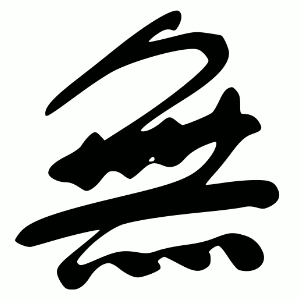
I’ve been reading Brian Christian’s excellent book The Most Human Human over the past week or so – inspired by the very good Radiolab on ‘Talking to Machines.’
One thought from it that’s made me think a lot is the concept of the Japanese word mu.
It comes in a section where Christian is describing the art of conversation – the premise of the book being that he is trying to win the prize for being ‘the most human human’ at the annual Loebner Prize competition where chat-bots and humans are interrogated by judges in the famous ‘Turing Test to see if the chat-bots can fool a majority of judges that they’re human.
One difficulty in English – which is also its great beauty – is the question that has no appropriate answer. The most popularly used example, though rather distasteful, is the question ‘have you stopped beating your wife?’ Answer yes, and it implies you once did… answer no, and, well… you are still doing it.
But the Japanese in their Zen Buddhist tradition have a response in this situation, which is: mu. There is no direct translation of this character, but it can be taken to mean a rejection of the dualistic premise of the question. It represents what might be called an unasking of the question.
And that, it seems to me, is something we need in our common syntax. In politics, in theological investigation, in poetic exploration. Because so many of the propositions that are put before us damn us both ways, and so often the answer I want to give to the options life throws up are… mu. I am unasking that, because the foundations upon which that has been asked are not ones I wish to stand on.